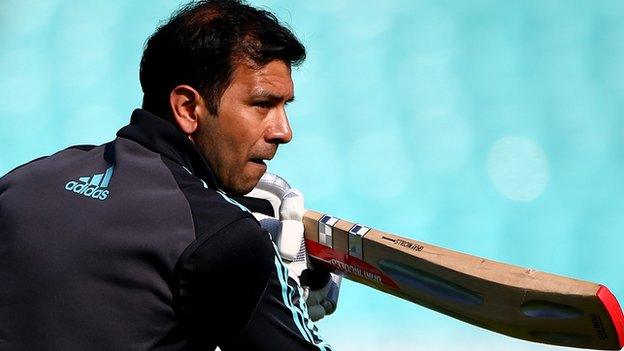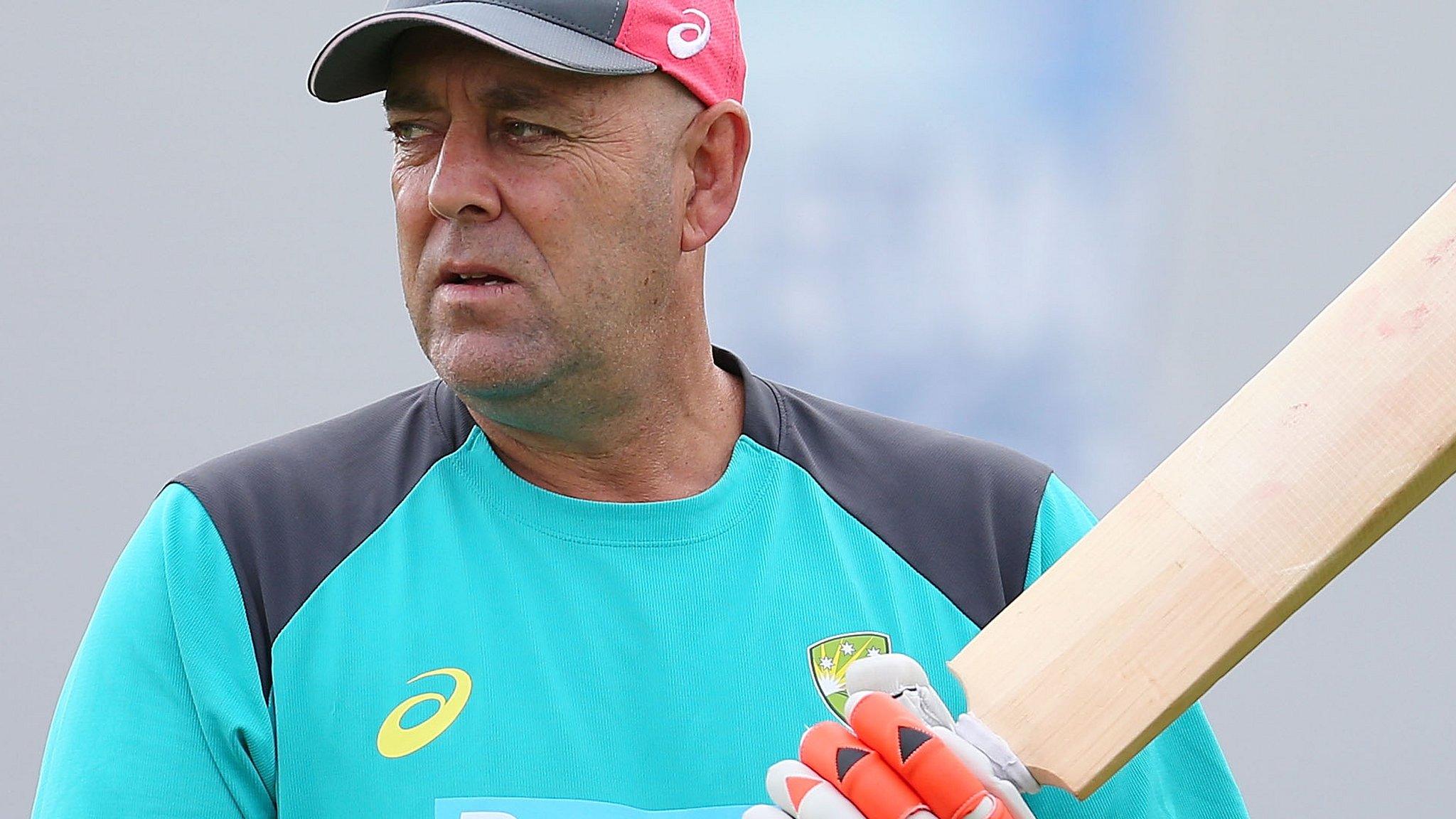Rooney Rule: ECB to implement BAME policy after South Asian study
- Published

Former England international Vikram Solanki was appointed Surrey assistant coach in January
The England and Wales Cricket Board is to implement a 'Rooney Rule' for all coaching roles in the national men's, women's and disabled teams.
It means that at least one applicant from black, Asian or minority ethnic (BAME) backgrounds will be interviewed for future jobs.
That follows the biggest study the ECB has ever conducted into cricket in South Asian communities.
The Rooney Rule was implemented in the USA's NFL in 2003.
Named after NFL diversity committee chairman Dan Rooney, it requires clubs in American football to interview at least one BAME candidate for each head coach or senior football operation vacancy.
The Football Association adopted a similar stance for positions in the England football set-up in January.
The study, which involved speaking to more than 600 people across the UK, has revealed that South Asian participation makes up 30% of the recreational game in the UK and 18% of the cricketing economy is contributed by fans of South Asian origin.
It also found that the biggest barrier to South Asian participation was access to facilities in urban areas.
An action plan to get more South Asians playing, supporting and getting involved in cricket includes the introduction of the Rooney Rule for the men's senior, Lions and Young Lions squads, along with the senior women's team and the four disability outfits.
The ECB says it is a "long-term ambition" for implementation between 2020 and 2024, although it could come into force much sooner. It is also hopeful that a similar policy can be applied in county cricket.
In addition, the ECB is looking to create more than 20 new Urban Cricket Centres and develop 1,000 non-turf and 100 turf pitches by 2024.
There is also the intention to train and develop 200 female coaches from all backgrounds and award bursaries to talented young South Asian players.
"Cricket is a force for good in society and our job is to ensure that it makes a positive impact on as many people's lives as possible," said ECB chief executive Tom Harrison.
"While we've long acknowledged the passion for the game in South Asian communities in the UK and had the best intentions, we have never fully understood how to engage with South Asian communities. This report gives us a road map to change that."
Lord Patel of Bradford, the ECB senior independent director, added: "As a British Asian who grew up playing cricket in the streets and on the pitches of Bradford in the 1960s, I have first-hand experience of the enormous benefits of our sport.
"Cricket gave me the confidence, connections and opportunities to meet new people outside my community, as well as develop lifelong friendships.
"The passion South Asian communities in the UK have for cricket remains high but, over 50 years later, there is still so much untapped potential. This plan will help to change that - starting today."
- Published10 May 2018

- Published9 May 2018

- Published9 May 2018

- Published8 May 2018
